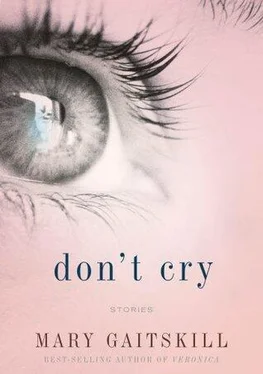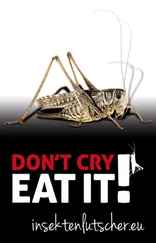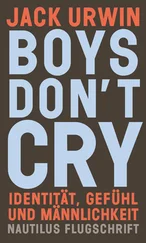Which is exactly what the feminist author did not do. I drained my second glass of wine. The feminist author — she told and then read her disturbing stories as if she were a lady at a tea party as if there were no mystery no darkness, just her, the feminist author skipping along, swinging some charming little bag, and singing about penises, la la la la la!
Another server wafted past, a young woman with her mind clearly on something else. I reached for another glass of wine, then changed my mind. Of course, someone might say — I can picture a well-dressed, intellectual lady saying it — well, why not? And rationally, there is no reason why not. These things are accepted now; these things are talked about in popular comedies on television. So why not? Because everyone knows such television shows are nonsense. Because glib acceptance does not respect the profound nature of the agonized face.
I reconsidered having another wine; looking for a server, I noticed that the Somali author, momentarily unpestered, was looking at me with a kindly expression. He was handsome, well dressed, and elegant. Impulsively, I crossed the room and introduced myself His hand was long, dry, and warm. He had come from New York, not Somalia. He came every year. When I told him it was my first time, he smiled.
“Are you enjoying yourself?” he asked.
“Yes,” I said, “though it's been a long time since I've had two quick drinks this early in the day”
He laughed, raised his wineglass, and sipped from it.
“And you?” I asked. “Do you enjoy this?”
“Oh yes,” he said. “One meets such curious people. And, of course, interesting people, too.”
“What about her?” I indicated the feminist author, now chatting with her back to us. “What did you think?”
“Oh!” The Somali author laughed. “I've heard what she has to say many times — it's nothing new. But I did admire the panache with which she said it. Did you see Binyavanga speak on cultural rationalism?”
But we were interrupted by more people wanting his signature, and then it was time for his reading. “I hope you will come,” he said.
The Somali author read from his award winner, the novel about civil war and familial bonds. He skipped through the book, reading excerpts from several chapters, starting with a tender love scene between a husband and his wife, who magically has two sets of breasts, the normal set augmented by a miniset located just under her rib cage. Their young son runs in and cries, “Are you going to give me a sibling?” Then the author jumped ahead, and suddenly there it was again: the agonized face. The son, now grown, is being pursued by a fat, whorish girl who claims he owes her a baby, even though she has AIDS and he is engaged to someone else. We learn that this very girl, an orphan who was briefly taken in by the family when she was fourteen, once sexually attacked the grandfather, who responded by righteously kicking her in the face. When the mother learns that this slut is back again, she decides to get a gun, humiliate the girl, and then kill her. The grandfather, though, does not want the mother on the street during the escalating civil unrest. “Leave her to me,” he counsels; “there is, after all, something unfinished between us.” He goes to the son's house to lie in wait, and sure enough, the slut comes calling. She's looking for the son, but when she finds grandpa, it doesn't matter; she wants his baby, too. He pretends to be asleep while she masturbates him. She thinks, How beautiful his penis is! She longs for his children! She mounts him, and the grandfather reports, with a certain gentlemanly discretion, that he and the slut “went somewhere together.” But nonetheless, almost as soon as they are done, the girl is mystically stricken with discharge and gross vaginal itching; she runs down the road, scratching her crotch as she screams, “I itch! I smell!” The son is happily reunited with his fiancée, and the wife, his mother, finds new tenderness with her husband. The grandfather meditates on history.
If he had been an American or a Canadian man saying these things, he might've been booed as a misogynist. But an African man — no. It was wonderful, especially the way he read it — with the earned hauteur of a man who has seen war, persecution, and the two sides of the agonized face: the mother who is poignant in her open-legged vulnerability and the visage of the female predator. Because for all its elegance, his voice — unlike the voice of the feminist author — did not try to hide reality: the pain and anger of the unsatisfied womb grown ill from lack of wholesome use, a fungal vector of want, thick with tumors, baby's teeth, and bits of hair inside each fibrous mass. Pitiful, yes, but also nasty though we in the antiseptic West don't say so.
“Motherhood is the off-and-on light in the darkness of night,” concluded the author, “a firefly of joy and rejoicing, now here, now there, and everywhere. In fact, the crisis that is coming to a head in the shape of civil strife would not be breaking in on us if we'd offered women as mothers their due worth, respect, and affection; a brightness celebrating motherhood, a monument erected in worship of women.”
The audience went wild.
In the big reception hall, we celebrated the Somali author with more drinks, and I caught up with the American novelist whose son actually had been nearly killed by a drunk driver. She was a good egg, hawk-nosed and plainly dressed, and she was having a stiff one. When I asked her, she said she'd disliked writing about the accident, but that if she hadn't written about it, she never would've been able to pay the medical expenses. We gossiped; we admired the Somali author. “I can't imagine an American writer saying something like that,” she said. “ ‘A monument erected in worship of women.’ “
“I know,” I said, “it was lovely.” As long as you're the right kind of woman , I didn't say. I glimpsed the feminist author across the room from us, standing by herself, eating a fistful of grapes. The American writer was saying something about how irony is the most human of artistic methods, but I was thinking of something else. I was thinking of a girl I had known in high school named Linda Phoenix. She was a thin girl with a stark, downy back, who fucked every boy plus some girls. Jeff Lyer, an angry fat kid, brought pictures to school of her drunk and sucking someone's penis, and people passed them around the cafeteria, laughing or feeling sorry or just looking.
Across the room, two reporters approached the feminist author with their tape recorders. I thought of the blurred pictures of Linda Phoenix. I thought of my daughter, standing before the mirror, pushing her lower lip out, making seductive eyes. I thought of her sitting at the kitchen table, drawing scenes from her favorite book, Magic by the Lake. I thought of her frightened awake from a nightmare, crying, “Mommy, Mommy!” I remembered washing her as a baby, using the spray hose from the kitchen sink to rinse shit from the swollen petals of her infant slit — a hole she may fall down if she opens it too early, a dark Wonderland of teeth and bones and crushing force. The hole in life, a hole we cannot see into, no matter how closely we look.
I had had too much to drink and too little to eat, and for a drunken instant the hall became a courtroom, the authors and journalists members of a jury overspilling the box to cry out: Now hold on a minute! Are you completely out of your mind? It is one thing to express disdain for this so-called feminist, who may deserve it. Even the muddled atavism about rotten wombs full of baby teeth — well, it is loony and gross, but in the locked closet of our inmost heart, we can see how you might feel that way But your daughter? What kind of mother are you? Leave her out of this grotesquerie, please!
Читать дальше












